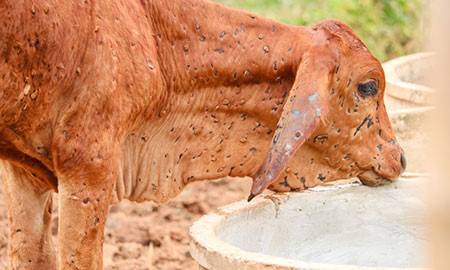
Livestock producers are urged to stay vigilant as two infectious diseases sweep the globe.
Lumpy skin disease is spreading rapidly through southeast Asia, Vietnam, and Indonesia, and if it reaches Australia, experts advise there will be major economic and trade losses as well as animal welfare repercussions.
Meanwhile, Indonesia has confirmed more than 3,000 cases of foot and mouth disease in four provinces of East Java and North Sumatra.
While it can cause serious production losses the most significant impact of the disease is bans or restrictions on imports from affected countries, resulting in serious economic implications.
With the potential for such widespread devastation, AgForce is warning members to stay alert and watch for signs of these diseases.
LSD is a highly infectious disease of cattle and water buffalo that does not affect other livestock or humans. The disease is caused by a virus like sheep pox and goat pox and is mostly transmitted by biting insects.
How the disease spreads
The transmission of LSD is not completely understood. The main two routes of transmission are mechanical transmission by arthropod vectors such as mosquitoes, ticks and biting flies and the movement of infected animals. The disease can also be spread by fomites through such things as contaminated equipment and in some cases directly from animal to animal.
The disease has shown its ability to establish and spread in a wide range of environmental and productions systems around the world.
What to look for
- Scabs develop in the centre of nodules after which the scabs fall off, leaving large holes that may become infected
- Swelling of the limbs, brisket and genitals
- Watering eyes
- Increased nasal and salivary secretions.







